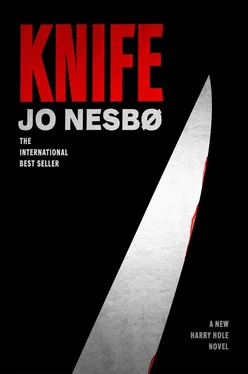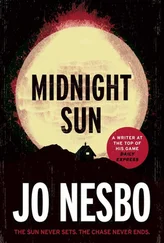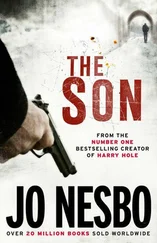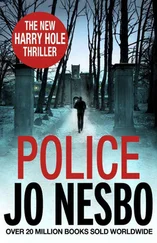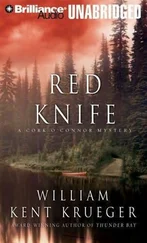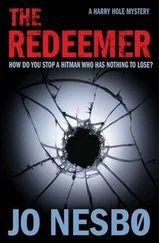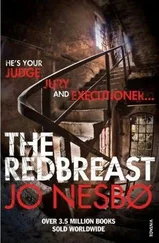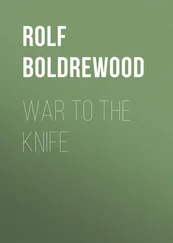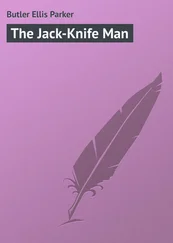Harry cleared his throat. “Listen, maybe it’s time for me to tell—”
“No,” Oleg interrupted. “I don’t want to know anything about why she threw you out. If that’s OK with you? And nothing about the rest of it either.”
“OK,” Harry said. “It’s up to you how much you want to know.” That was what he used to say to Rakel. She had made a habit of asking for less rather than more information.
Oleg ran his hand along the side of the boat. “Because the rest of the truth is bad, isn’t it?”
“Yes.”
“I heard you in the spare room last night. Did you get any sleep?”
“Mm.”
“Mum’s dead, nothing can change that, and for the time being it’s enough for me to know that someone other than you was guilty. If I discover that I do need to know, maybe you can tell me later on.”
“You’re very wise, Oleg. Just like your mother.”
Oleg gave him a sardonic smile and looked at the time. “Helga will be waiting for us. She’s bought some cod.”
Harry looked down at the empty bucket in front of him. “Smart woman.”
They reeled their lines in. Harry looked at his watch. He had a ticket for an afternoon flight back to Oslo. He didn’t know what was going to happen after that; the plan he had worked out with Johan Krohn went no further than this.
Oleg put the oars in the rowlocks and started to row.
Harry watched him. Thought back to the time he used to row while his grandfather sat in front of him, smiling and giving Harry little bits of advice. How he should use his upper body and straighten his arms, row with his stomach, not his biceps. That he should take it gently, never stress, find a rhythm, that a boat gliding evenly through the water moves faster even with less energy. That he should feel with his buttocks to make sure he was sitting in the middle of the bench. That it was all about balance. That he shouldn’t look at the oars, but keep his eyes on the wake, that the signs of what had already happened showed you where you were heading. But, his grandfather had said, they told you surprisingly little about what was going to happen. That was determined by the next stroke of the oars. His grandfather took out his pocket watch and said that when we get back on shore, we look back on our journey as a continuous line from the point of departure to the point of arrival. A story, with a purpose and a direction. We remember it as if it were here, and nowhere but here, that we intended the boat to meet the shoreline, he said. But the point of arrival and the intended destination were two different things. Not that one was necessarily better than the other. We get to where we get to, and it can be a consolation to believe that was where we wanted to get to, or at least were on our way towards the whole time. But our fallible memories are like a kind mother telling us how clever we are, that our strokes with the oar were clean and fitted into the story as a logical, intentional part. The idea that we may have gone off course, that we no longer know where we are or where we are going, that life is a chaotic mess of clumsy, fumbled oar strokes, is so unappealing that we prefer to rewrite the story in hindsight. That’s why people who appear to have been successful and are asked to talk about it often say it was the dream — the only one — they’d had since they were little, to succeed in whatever it was that they had been successful in. It is probably honestly meant. They have probably just forgotten about all the other dreams, the ones that weren’t nurtured, that faded and disappeared. Who knows, perhaps we would acknowledge the meaningless chaos of coincidences that make up our lives if — instead of writing autobiographies — we had written down our predictions for life, how we thought our lives would turn out. We could forget all about them, then take them out later on to see what we had really dreamed about.
Around now his grandfather would have taken a long swig from his hip flask, then looked at the boy, at Harry. And Harry would have looked at the old man’s heavy eyes, so heavy that they looked like they were going to fall out of his head, as if he were going to cry egg white and iris. Harry hadn’t thought about it at the time, but he thought about it now — that his grandfather had sat there hoping his grandson would have a better life than him. Would avoid the mistakes he had made. But perhaps also that one day, when the boy was grown up, he would sit like this, watching his son, daughter, grandchild row. And give them some advice. See some of it help, some get forgotten or ignored. And feel his chest swell, his throat tighten, in a strange mixture of pride and sympathy. Pride because the child was a better version of himself. Sympathy because they still had more pain ahead of them than behind them, and were rowing with the conviction that someone, they themselves perhaps, or at least their grandfather, knew where they were going.
“We’ve got a case,” Oleg said. “Two neighbours, childhood friends, who fell out at a party. There’d never been any trouble between them before, solid types. They each went home, then the next morning one of them, a maths teacher, showed up at the other’s door with a jack in his hand. Afterwards the neighbour accused the maths teacher of attempted murder, said he’d hit out at his head before he managed to close the door. I questioned the maths teacher. And I’m sitting there thinking: no, if he’s capable of murder, then we all are. And we aren’t. Are we?”
Harry didn’t answer.
Oleg stopped rowing for a moment. “I thought the same thing when they told me that Kripos had evidence against you. That it just couldn’t be true. I know you’ve had to kill in the course of duty, to save your own or someone else’s life. But a premeditated, planned murder, the sort of murder where you clean up all the evidence afterwards... You couldn’t have done that, could you?”
Harry looked at Oleg, sitting there waiting for him to answer. The boy, almost a man, with his journey still ahead of him, with the possibility of becoming a better man than him. Rakel had always had a note of concern in her voice when she told him how much Oleg looked up to him, tried to copy him down to the smallest details, the way he walked, with his feet turned out slightly, a bit like Charlie Chaplin. That he used Harry’s special words and expressions, such as the archaic “indubitably.” He copied the way Harry rubbed the back of his neck when he was thinking hard. Repeated Harry’s arguments about the rights and limitations of the state.
“Of course I couldn’t have done it,” Harry said, pulling his cigarettes from his pocket. “It takes a particular type of person to plan a cold-blooded murder, and you and I, we’re not like that.”
Oleg smiled. Looked almost relieved. “Can I bum a—”
“No, you don’t smoke. Keep rowing.”
Harry lit a cigarette. The smoke rose straight up, then drifted off towards the east. He squinted towards the horizon that wasn’t there.
Krohn had looked utterly confused, standing there in the doorway in just his boxer shorts and slippers. He had hesitated for a moment before asking Harry in. They had sat down in the kitchen, where Krohn had served tasteless espresso from a black machine while Harry briefly checked that everything he said was in confidence, then he served up the whole story.
When he had finished, Krohn’s coffee cup was still standing untouched.
“So what you want is to clear your name,” Krohn said. “But without identifying your colleague, Bjørn Holm.”
“Yes,” Harry said. “Can you help me?”
Johan Krohn had scratched his chin. “That’s going to be difficult. As you know, the police don’t like to let go of one suspect unless they’ve got another one. And what we’ve got, the analysis of some blood on a pair of trousers that shows you were drugged with Rohypnol, and the electricity usage that shows the thermostat had been turned up and then down again, those are just corroborating factors. The blood could have come from another occasion, the electricity could have been used in another room, it doesn’t prove anything at all. What we need... is a scapegoat. Someone who hasn’t got an alibi. Someone with a motive. Someone everyone would accept.”
Читать дальше
